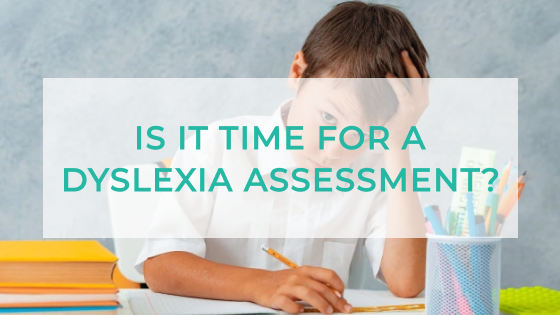
Your child struggles to read. You’ve wondered more than once if they might have dyslexia. Perhaps one of their parents or grandparents was diagnosed, or maybe they never had a dyslexia assessment to find out for sure. Maybe someone has suggested your child be tested, so you wonder if it is time for a dyslexia assessment for them.
Determining if someone has dyslexia is a process that includes determining why the student has difficulty reading and what can be done to help.
Why is a Dyslexia Assessment important?
A dyslexia assessment gathers information to identify factors that contribute to your child’s difficulty with learning to read and spell. Information from you and their teachers helps provide background and context. Then, tests identify strengths and weaknesses to lead to a diagnosis. The results of the dyslexia assessment create a tentative road map to plan interventions to help your child. Detailed recommendations help you decide what your next steps will be to support your child’s learning journey.
When your child has difficulties learning to read and spell, a dyslexia assessment is important for three reasons.
1. A Diagnosis
An evaluation identifies the source of the problem and rules out other possible reasons for reading difficulties.
2. Intervention Planning
Students with dyslexia need a specialized approach to reading instruction, starting at their current skill level, not their grade level.
3. Documentation
Evaluation documentation determines your child’s eligibility for special educational services. Documentation also helps obtain accommodations at all levels, from elementary school to university and in the workplace.
If your child’s teacher has suggested an evaluation, or you wonder if your child has dyslexia, an assessment is the next step. Talk to us here at Class-in-Session for more details about the process. We are happy to help you and your child determine if dyslexia is at the root of your child’s reading struggles.




